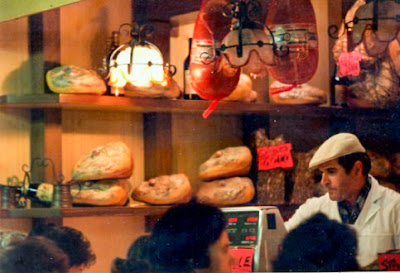This blog may help people explore some of the 'hidden' issues involved in certain media treatments of environmental and scientific issues. Using personal digital images, it's also intended to emphasise seasonal (and other) changes in natural history of the Swansea (South Wales) area. The material should help participants in field-based modules and people generally interested in the natural world. The views are wholly those of the author.
Monday, 30 January 2023
Climate Change and Iberico Ham
Jamon Iberico bellota is a delicacy from Western and North-west Spain. The pigs, from which the ham is obtained, gorge themselves on acorns in the dehesa oak forests of that region. Jamon Iberico bellota currently sells for circa £88 per kilo (https://www.theguardian.com/world/2023/jan/30/spains-prized-jamon-iberico-under-threat-from-climate-crisis). Climate change has increased temperatures and reduced rainfall in Western/NW Spain. This means that the oak trees in the forests produce many fewer acorns. The fewer the acorns, the less Jamon Iberico bellota is generated. Last year showed a 20% decline in the ham's production. Prized local delicacies (truffles, wine, cheeses etc) depend on reliable weather conditions, in places where they are produced. Jamon Iberico bellota is yet another regional product threatened by changes.
Subscribe to:
Post Comments (Atom)


No comments:
Post a Comment